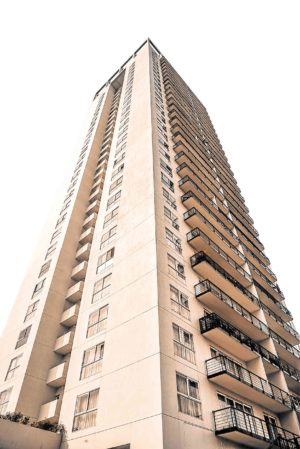Why do condominiums cost so much?
Do you often wonder why condominium units cost so much? More often than not, the cost per square meter of a condominium is more expensive than the traditional house on a lot.
According to Colliers International, the most expensive condominium unit in Metro Manila nowadays even sell for a whopping P550,000 per sqm. But why do these units cost so much if they offer so little space? If you review brochures and websites of condominiums closely, you’ll see that they highlight the amenities and locations of these buildings.
You might also notice that the tinier the units are, the more creative developers get in maximizing available space.
In short, with a condominium building, you pay for convenience, comfort and efficiency. Apart from your own living space, you also pay for community amenities such as a swimming pool, gym and a basketball court. In the long run, however, are these features really worth your extra buck?
When small spaces equate efficient planning
Article continues after this advertisementDue to the limited space in condominiums, developers are forced to study and carefully plan the unit layouts. With floor areas that can go as small as 19 sqm, some residents might find it difficult at first to adjust to small space living. Because of these, designers who are tasked to plan residential units really pour their efforts into ensuring each square meter is maximized.
Article continues after this advertisementOne such apartment that demonstrates this concept is the tenement unit owned by Gary Chang, an architect based in Hong Kong. As Hong Kong is known to have a dense population, many locals have no choice but to live in tiny spaces.
And Gary Chang is one such resident with his home merely occupying 31.95 sqm of floor area. What makes Chang’s apartment unique, however, is how he designed the space to maximize its use. Through the use of tracks and sliding furniture, his apartment can easily transform into 24 different rooms.
Depending on the time of the day, Chang’s limited space transforms into a bedroom, a corridor kitchen, a bathroom with a tub, a living area, and a screening room with a hammock among other spaces. Tall, tinted windows add light and set the mood in the room. Mirror panels make the apartment look bigger than it actually is.
While Chang’s apartment can hardly be distinguished from his neighbors’ on the outside, the way he used the space allowed him to enjoy a comfortable lifestyle. His efficient design also makes his home eco-friendly, as his limited space requires less energy consumption than most single-detached homes.
Overall, with efficient planning, Gary Chang was able to make his tiny home function like a luxurious mansion.
How condominiums encourage better lifestyles
Living in condominiums forces you to use space wisely.
Contrary to popular belief, comfortable living does not rely only on abundant space. It also depends on your use and management of the space. Given the limited area, a resident is forced to live minimally. Hoarding of possessions becomes a thing of the past because you cannot fit a lot of stuff in a small unit.
Small spaces also encourage you to get out more and enjoy the outdoors. This is why many high-rise residences nowadays are built with amenities meant to be enjoyed by all homeowners. Living in condominiums encourage a healthy and curated lifestyle because many things become easy to access.
Lastly, condominiums encourage social ties. With a small living area, you get to live intimately with your loved ones. You are also forced to mingle with your neighbors more than a traditional house owner, as you would have to share an elevator or jogging path with them.
These shared experiences would help you develop better relations with your neighbors than in a sprawling subdivision.
Increasing value of condominiums
With all these benefits, it becomes clear now why condominiums cost a lot. Beyond a place to stay, they offer efficient living arrangements and curated lifestyles. Even if many units offer small areas, these spaces are often planned efficiently to provide maximum comfort and flexibility.
If you own a condominium unit or are planning to buy one, consider yourself lucky as it usually proves to be a good investment in the long run as demand for it runs high. Over time, the value of condominium units rises especially when they’re located in business districts. With the benefits it offers to urban dwellers, you can be sure that your condominium unit will bring you profit in case you plan to sell or rent it out.
Despite its initial high costs, the benefits and perks offered by condominiums make them worth it in the long run.
Sources:
apartmentguide.com; colliers.com; businessinsider.com; Edge Design Institute via Design Boom; Amin Sujan and sk via pexels.com



